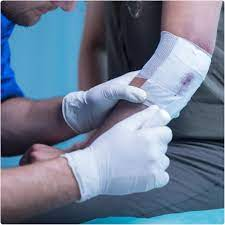
What To Wear For Wisdom Teeth Removal
July 24, 2022
How To Grant Uri Permission In Android
August 3, 2022As a healthcare professional, it’s essential to understand the importance of wound management, but are you familiar with the best practice? There are several important elements that go into ensuring wound care is effective and safe. By engaging in professional development, you’ll be able to learn more about wound care, the latest research and techniques and how to provide high-quality care. Regardless of your field, you’ll learn about the benefits and challenges of wound care in a long-term care setting.
To determine the best education programme for your staff, you’ll need to assess the conditions in which you practice. Will this educational programme benefit the nurses in your organisation? If so, what kinds of topics should you focus on? And what level of urgency do you need to address? Once you’ve established the priorities, you’ll be ready to select the right curriculum. There are many ways to determine the educational needs of your nurses. For help with Clinical Training Courses, contact a site such as https://www.tidaltraining.co.uk/clinical-training-courses
As a healthcare professional, wound care can be both exciting and challenging. You will need to learn how to treat wounds and use the best treatments available for each patient. There are many factors that should be considered when assessing a wound, including type, location, and healing process.
It’s essential to identify the underlying issues that may affect healing, including medication, lifestyle, and chronic health problems. Treatment facilities must assess each patient’s situation in order to determine the best treatment options for their wound. Often, wound treatment specialists will check the patient’s overall health status to determine if other underlying conditions could be affecting the wound’s healing ability.




